Oprah and Leaving Neverland Convinced Me to Let Go of Michael Jackson
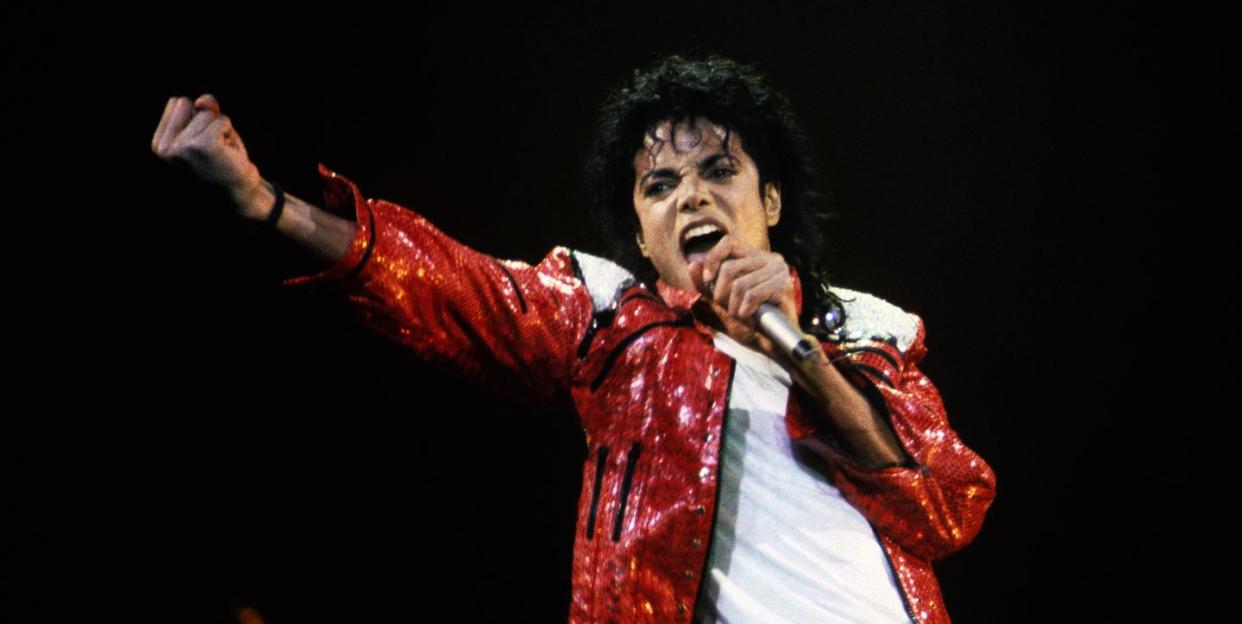
When I think about my childhood, some of my earliest memories are lying on my living room floor watching Michael Jackson's Moonwalker film over and over, and Sundays on the way to my grandparents' house, bellowing the lyrics to "Remember the Time" from the backseat of my Dad's cherry red Jeep. And then there are all the gatherings, from weddings to birthdays, where the only songs that would get everyone in my mixed, multicultural family on the dance floor to attempt their best moonwalks were "Billie Jean" and "Thriller."
So when I heard about the new two-night HBO documentary Leaving Neverland-and the fact that Oprah was going to be interviewing Wade Robson and James Safechuck, the two men in the film who accuse Jackson of sexually abusing them as children-I had a similar reaction to the rest of the world: Disbelief.
And that was my sentiment walking into Oprah Winfrey Presents: After Neverland-a conversation with Robson, Safechuck, and Leaving Neverland director Dan Reed-which was taped in New York City before a live audience of sexual abuse survivors. At the beginning, Oprah asked both men if they were prepared to "get it" for speaking out about Jackson's alleged crimes.
She was referencing the naysayers on social media who were already-before even watching the two-part documentary-discrediting Robson and Safechuck, calling them liars because neither of them had spoken up when they were younger about what they say happened to them. Oprah also mentioned the criticisms she had been receiving on social media, with commenters asking why she would do this interview when Jackson can't defend himself-and also accusing her of "trying to bring the Black man down."
I'm ashamed to admit it in writing, but, here goes: I was one of those critics.
Of course, the idea that Michael Jackson may have been not just an abuser, but a pedophile, was not new to me or the rest of the world before news broke about the upcoming Leaving Neverland, which documentary filmmaker Reed began production on last year. After all, much of my aforementioned childhood also included walking by the TV and seeing headlines with accusations against my favorite pop star, first in 1993 and later, a much-publicized trial in 2004. (And who could ever forget that interview Jackson did with Martin Bashir in 2003 where he whispered "I am Peter Pan"?)
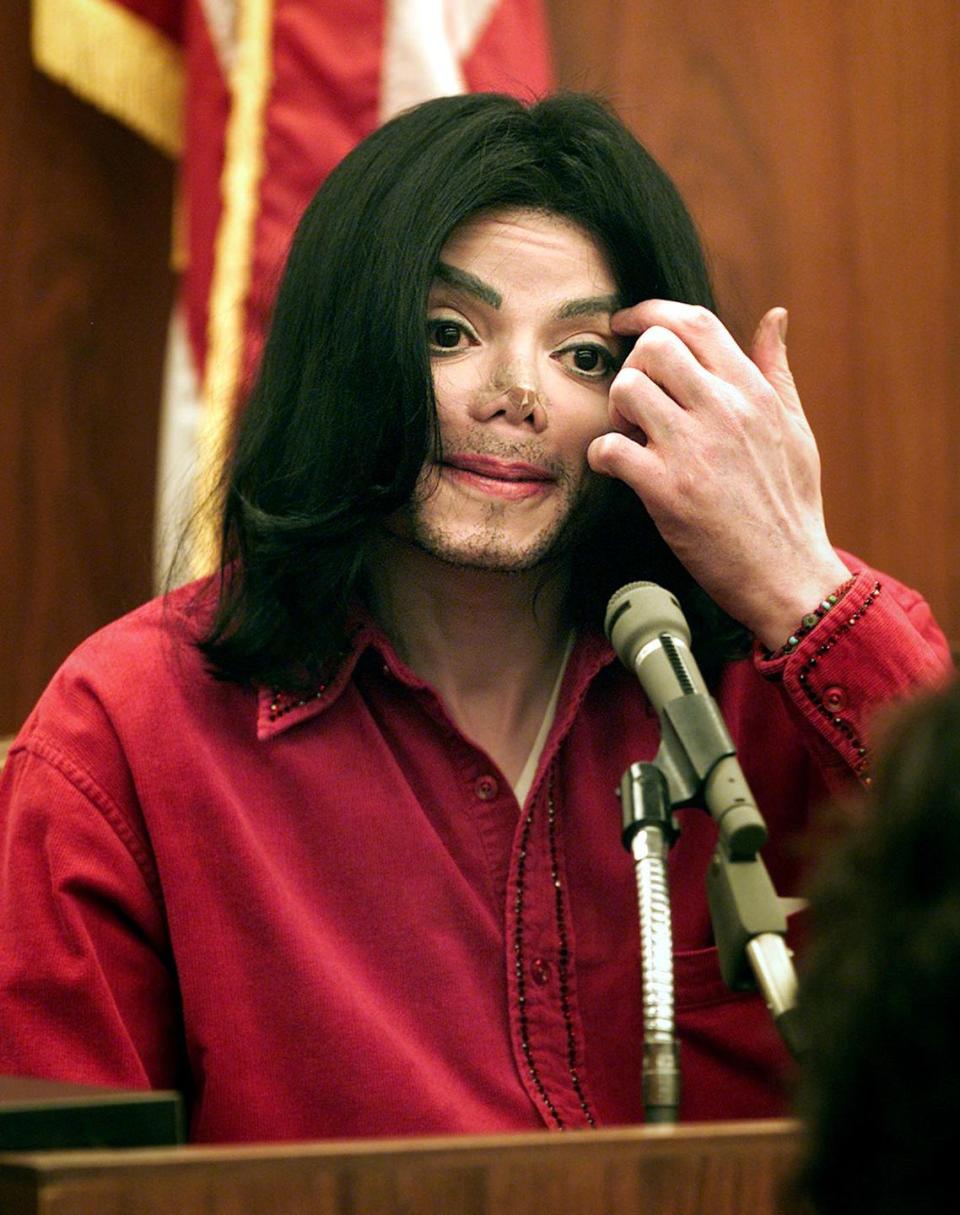
Still, even as a grown, college educated, opinionated adult, until just two days ago, I was one of those Michael Jackson defenders. I had go-to lines about being able to separate the art from the man; about how Jackson was certainly an oddball with an affinity for children because of his own troubled upbringing, but that didn't make him a criminal; about how there was never any real proof that he had abused children. (In 1993, after 13-year-old Jordan Chandler and his father accused Jackson of child sexual abuse, a police investigation was inconclusive, and Jackson settled with the family out of court. And an 18 month trial from 2004-2005 found Jackson not guilty of charges that he had molested another 13-year-old boy, Gavin Arvizo.)
I shared the same mindset of many of the folks Oprah was talking about. Not only was I questioning why our culture would want to bring down a man who isn't alive to protect himself, but I, too, was suspicious that these accusers were coming out now, after publicly defending Jackson when he was alive. Not to mention the timing; Leaving Neverland just so happens to be coming out months after an explosive Lifetime documentary that may have played a part in R&B singer
R. Kelly's recent indictment for 10 counts of aggravated criminal sexual abuse. (I should note that for the record, Leaving Neverland was in production long before Surviving R. Kelly aired.)
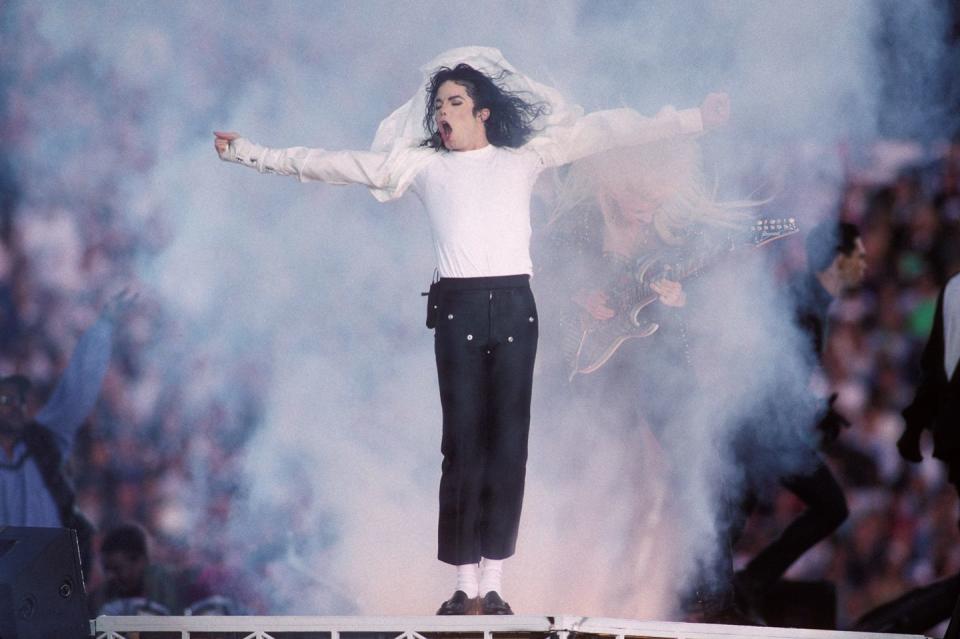
And to be completely honest, I also had a little bit of that "let's not bring the Black man down" in my own mentality. In the Black community, many of us feel an inherent need to "protect our own." It's a very complicated cultural dynamic with roots in slavery and beyond that would take me an entire separate article to unpack. But one reason that tends to happen in particular is the fact that in this country, Black people are at a disadvantage when it comes to career success. Just last year, a study by the Census Bureau and Stanford University found that no matter what their parents’ income level, Black men are less successful than white men on average.
So as a community, when we do see our people succeed, we want to cheer them on. But that becomes problematic when sometimes, that means we turn a blind eye to their mistakes, or, in this case (and the cases of other public figures like Kelly, O.J. Simpson, and Bill Cosby) crimes.
Before Oprah's interview with Robson, 36, and Safechuck, 40, HBO screened all four hours of Leaving Neverland. I can't even begin to summarize here everything that happens in those four hours, but if there is one message I can share: It is a must-watch-especially if you are a Michael Jackson fan.
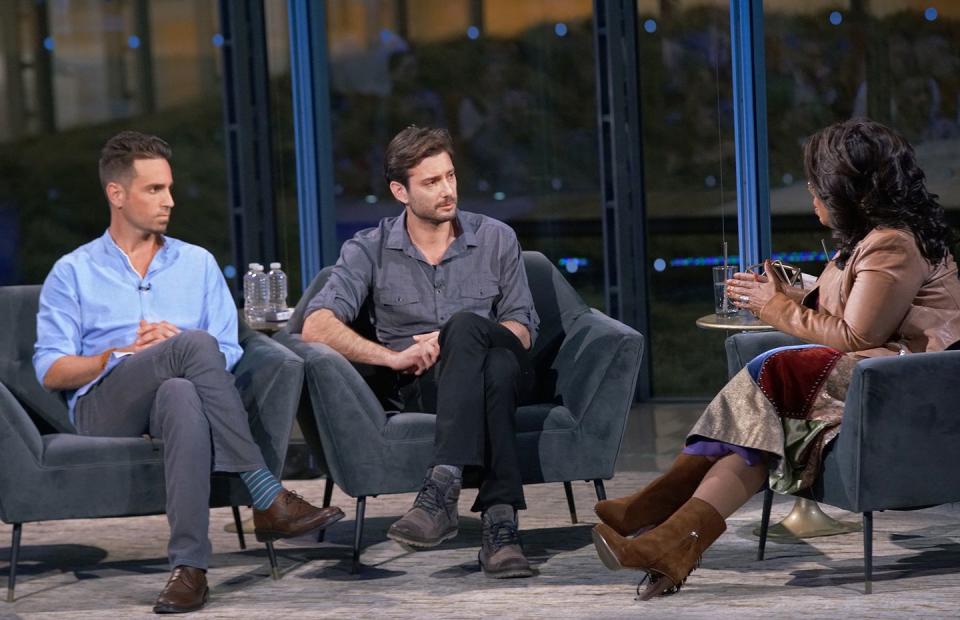
At the heart of this film are the stories of Robson and Safechuck, who-with appearances from their mothers, wives and siblings-discuss how they were discovered and mentored by Jackson from the ages of 6 and 9, respectively.
Robson and his mother moved from Australia to work with Jackson, and as a child, he starred in music videos like "Black or White" and "Jam," gigs that he says led to spending more and more time with Jackson, including sleepovers at Jackson's Neverland ranch. Similarly, Safechuck recalls meeting Jackson while filming a Pepsi commercial; they developed a similar working relationship that morphed into sleepovers at the ranch.
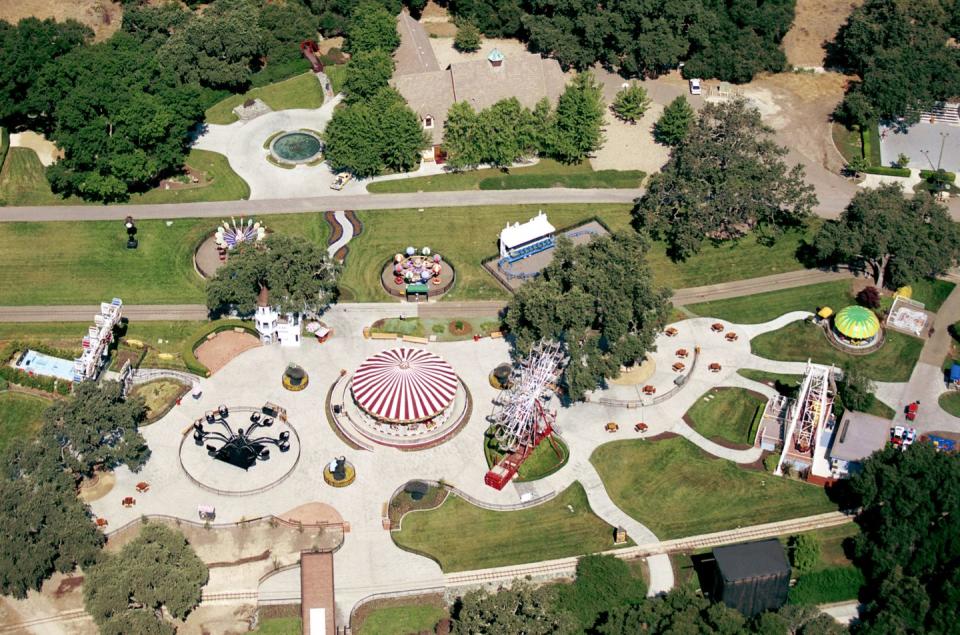
Throughout the film, we hear from both men (in, yes, graphic, explicit detail) about exactly what they say transpired between each of them and Jackson-and across four hours, we hear why neither of them came forward about what purportedly happened to them until adulthood. After, Robson-now a famed choreographer known for his work with singers like Britney Spears and *NSYNC-explained why he lied to the public for years.
"I had no understanding of it being abuse-I loved Michael," he told Oprah. "All the times that I testified and the many, many times that I gushed over him publicly in interviews...that was from a real place. While never forgetting any of the sexual details that happened between us, but having no understanding that it was abuse...having no concept in my mind that anything about Michael could ever bad...everything that Michael did was right to me for so many years." Later, he added: "Michael told me it was love, that God brought us together. And Michael was God to me."
With all of the pieces and details put together chronologically across four hours, Leaving Neverland brings to life a man who groomed his victims psychologically into simultaneously loving him and fearing him so steadfastly that they never accepted that they were abused themselves-much less wanted to tell anyone about it. And let's not forget that this wasn't just any man who was playing psychological tricks on pre-pubescent minds-this was a global superstar, perhaps the most well-known name on the entire planet. The hurt was so ingrained in each of these men, in fact, that neither of them were willing-or able-to accept what had happened to them until they had sons of their own.
By the end of the documentary, I felt an unexpected emotion: numbness. I sat in my seat struggling with how to fit together the harrowing depiction of a sick man I had just witnessed with the icon who had shaped so much of my life. And then Oprah began her interview by saying:
"This moment transcends Michael Jackson. It is much bigger than any one person. This is a moment in time that allows us to see this societal corruption that's like a scourge on humanity. And it's happening right now. It's happening in families-we know it's happening in churches, and in schools, and sports teams everywhere. So if it gets you, our audience, to see how it happens, then some good would have come of it."
That is when everything clicked for me-when I had what Oprah likes to call an "aha moment." Leaving Neverland is, indeed, much, much bigger than Michael Jackson. It is bigger than Michael Jackson's fans, bigger than me defending the soundtrack to my childhood. Instead, it is about the millions of people in this world who never got to have a childhood because of the sexual abuse they experienced before their young brains were even developed enough to know what was occuring. It's about the fact that every 11 minutes in this country, child protective services substantiates or finds evidence for a claim of child sex abuse-and that's just the ones we know about.
Leaving Neverland is about the children-and adults-who are silenced by people like me who are quick to defend accusers simply because of their status-or the people who choose to live in silence because they are afraid of exactly that happening.
Oprah, who referenced her own experiences with sexual abuse as a child during the interview, added that when you're as young as Robson and Safechuck were when they allege that Jackson abused them-7 and 10-you "don't have the language to explain what is happening to you." She explained:
"Here's the reason why I'm here. In 25 years of the Oprah Show, I taped 217 episodes on sexual abuse. I tried and tried and tried to get the message across to people that sexual abuse is not just abuse-it is also sexual seduction." None of those episodes, she goes on to say, illustrated that fact the way Reed's film did.
There are also accusations that Reed created this film and Robson, and Safechuck participated because they're after money and fame. But Reed cleared up one important thing: Neither Robson nor Safechuck were paid to be a part of Leaving Neverland. And both men clarified that they decided to take part in the documentary because they want to help victims like themselves. In fact, in the documentary, Safechuck reveals that he only finally came to terms with his own abuse-and opened up to his wife about it-after seeing an interview Robson did about his experience with Jackson on The Today Show in 2013.
Robson told Oprah of his decision to speak out: "If anything that I say is going to help any other survivors, then I should be able to speak the truth."
If, like me, you are still on the fence about what to believe or what not to believe-or even whether or not you want to watch this film-I can tell you this with 100 percent certainty: Watching both Robson and Safechuck's faces as they recollect what allegedly happened to them, both in Leaving Neverland and during Oprah's interview, there is not a single doubt in my mind that these men are telling the truth.
In my opinion, there is no manufacturing that kind of hurt and pain. These are not men who are fame hungry, or chasing money, or seeking to bring down a dead man. These are victims whose lives were forever ruined by a troubled, sick person who had the access and power to manipulate them for decades, even after his death-because he was larger than life. And that is something that is happening every single day in this country at the hands of far less powerful people.
"After the attention is no longer on this film, this is something I will be dealing with for the rest of my life," Safechuck told Oprah. "Forgiveness is not a line that you cross-it's a road that you take."
Leaving Neverland and Oprah's interview helped me come to terms with the fact that by continuing to defend Michael Jackson in the name of his talent, I was contributing to our society's habit of victim shaming. It physically pains me to think about forever parting ways with "The Way You Make Me Feel," the one song that can cheer me up on even my worst days, or the fact that I will never again get to witness the way an MJ classic brings everyone together at a family party.
I have loved Michael Jackson the artist for several decades. But in this case, there is no separating the artist from the man. There is no song, album, or memory that is worth discrediting what happened to a seven year old little boy who was so young when he was being touched sexually, he worried that his abuser would turn into the werewolf from "Thriller." There is not a single thing or person in popular culture that is worth not protecting and believing our children.
So for me, it's time to say goodbye to Michael Jackson-one last time.
"Leaving Neverland" debuts Sunday, March 3 at 8 PM EST on HBO. After the second half airs on Monday, March 4, “Oprah Winfrey Presents: After Neverland" will air simultaneously on HBO and OWN: Oprah Winfrey Network on at 10:00 PM EST. An extended version of the special will also be available on “Oprah’s SuperSoul Conversations” podcast starting Sunday, March 10.
For more stories from OprahMag.com, sign up for our newsletter.

